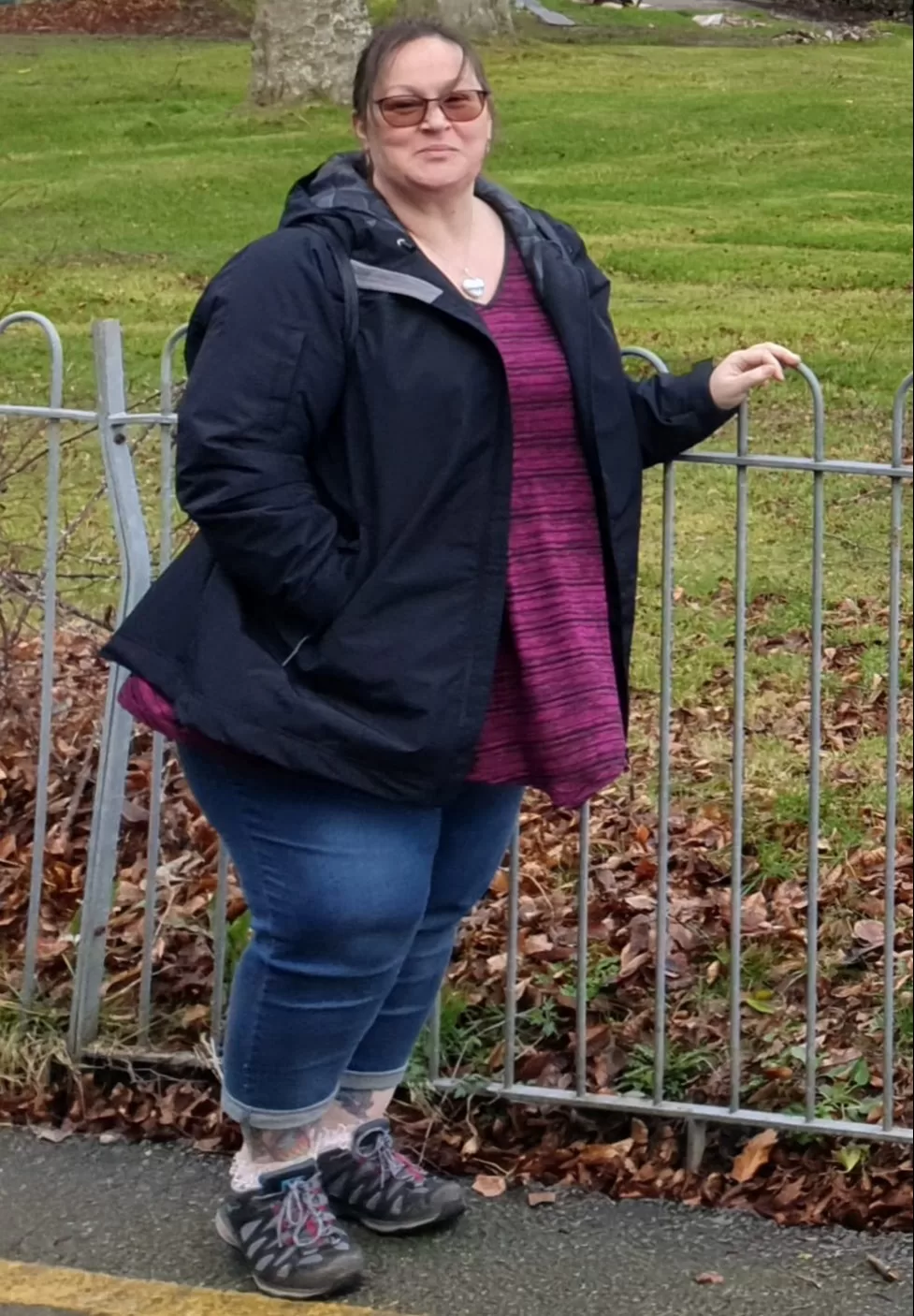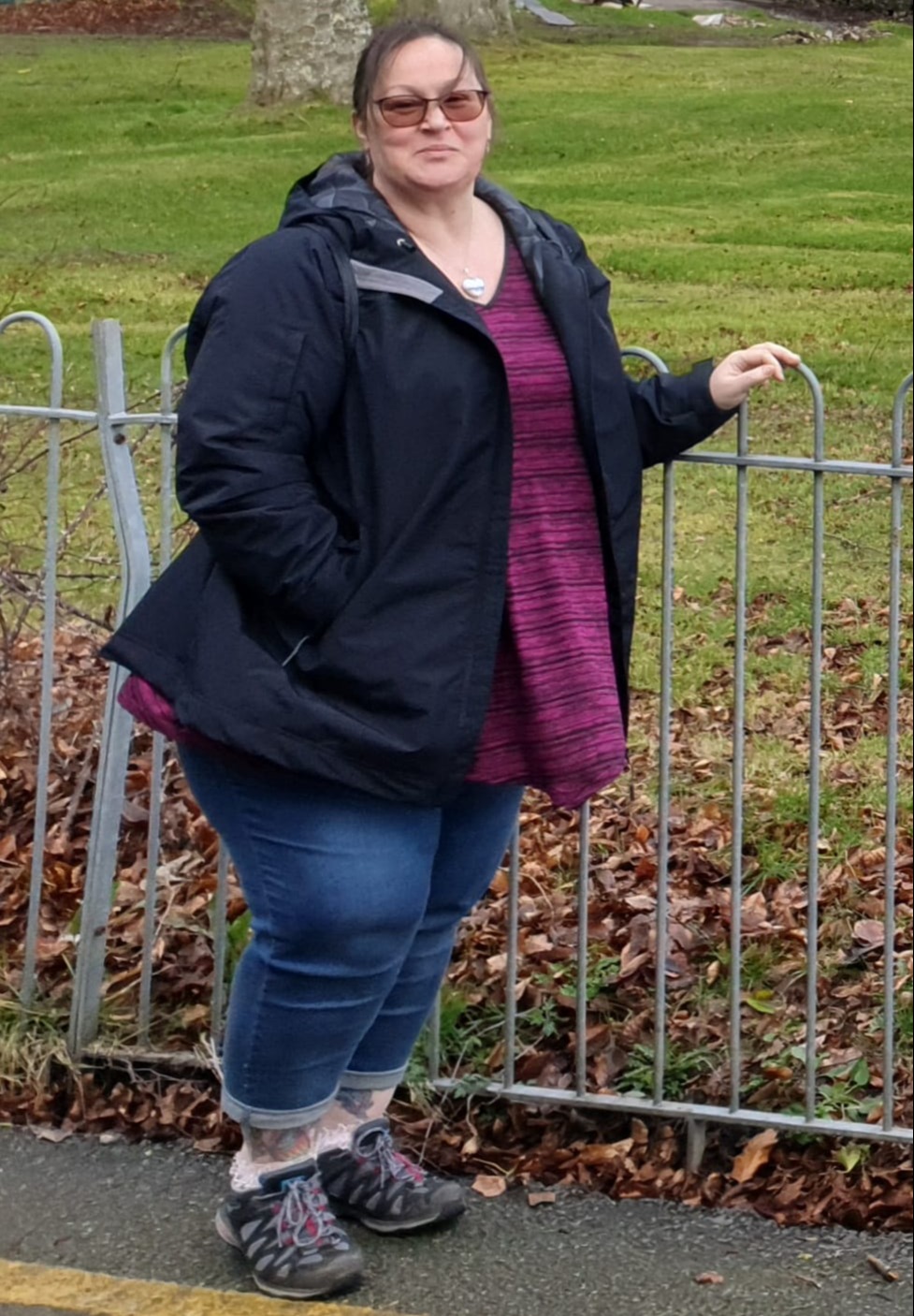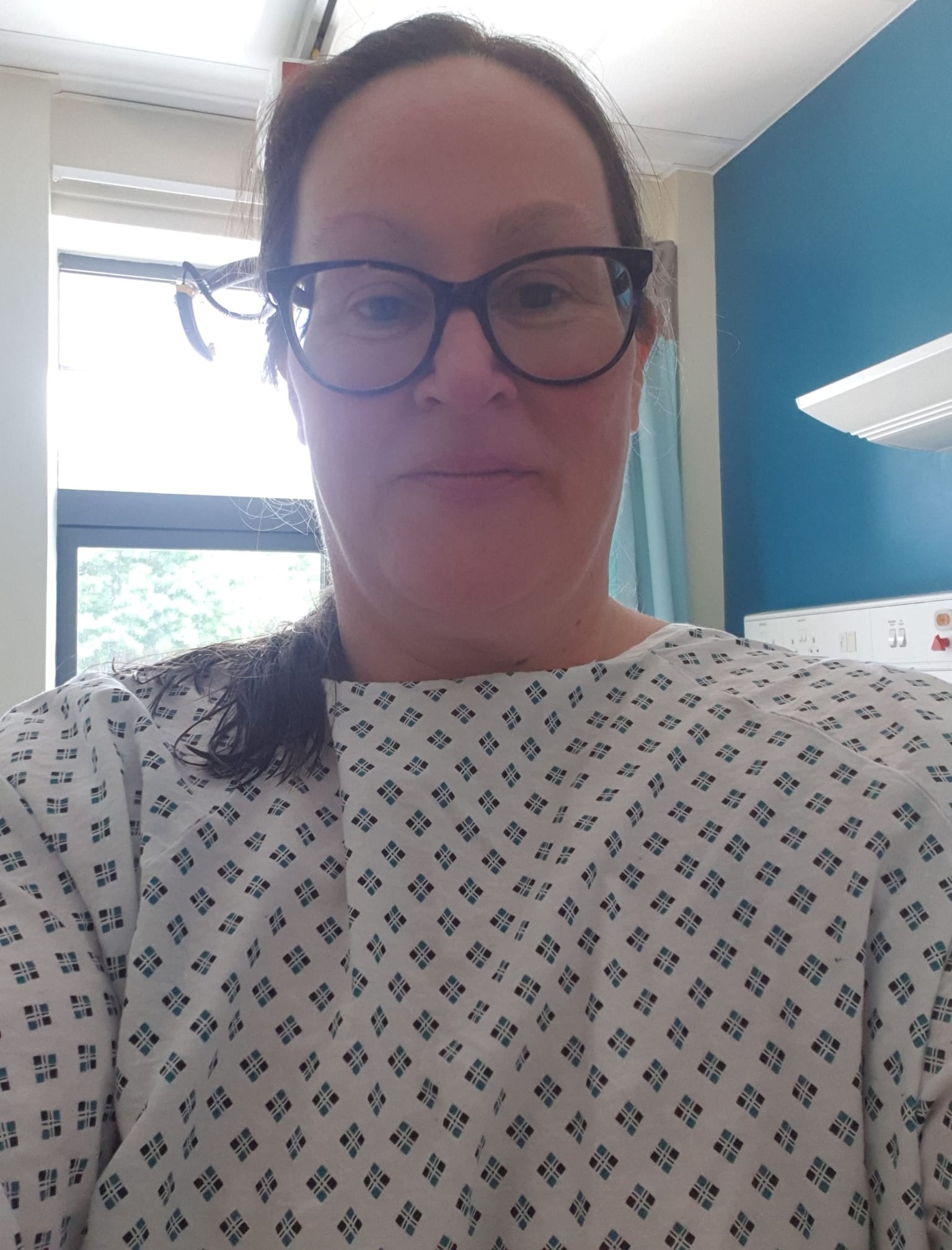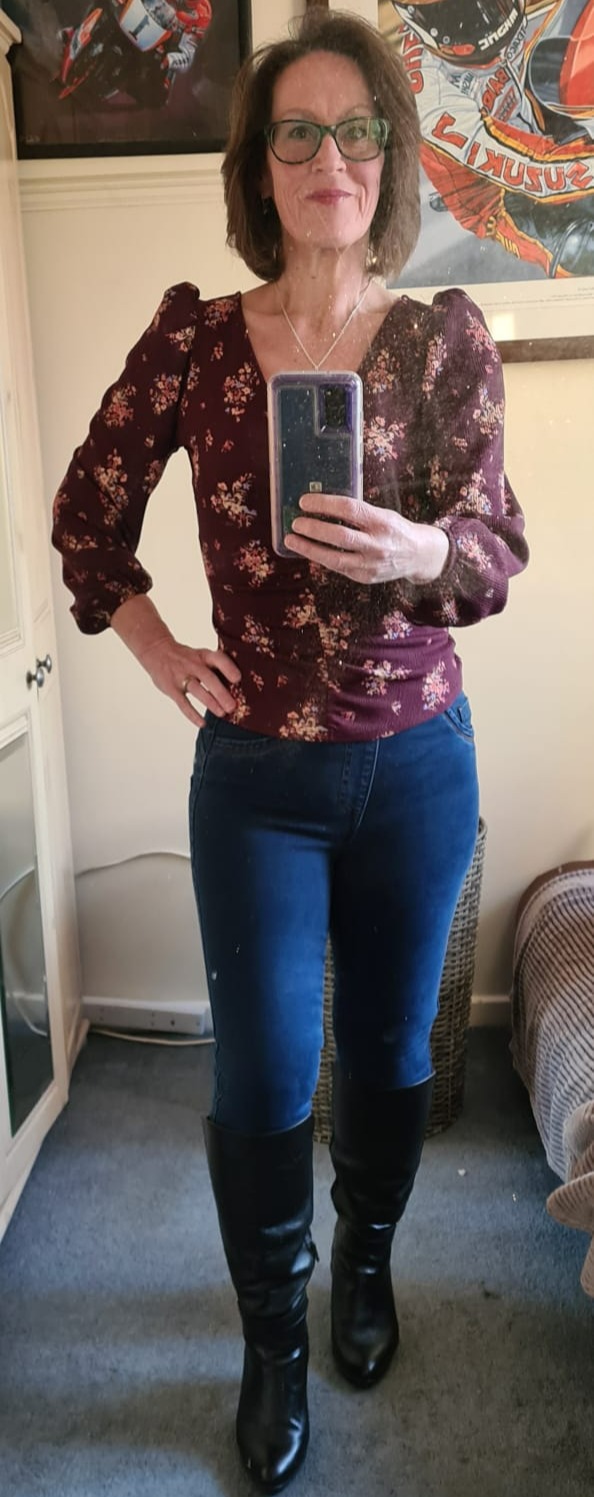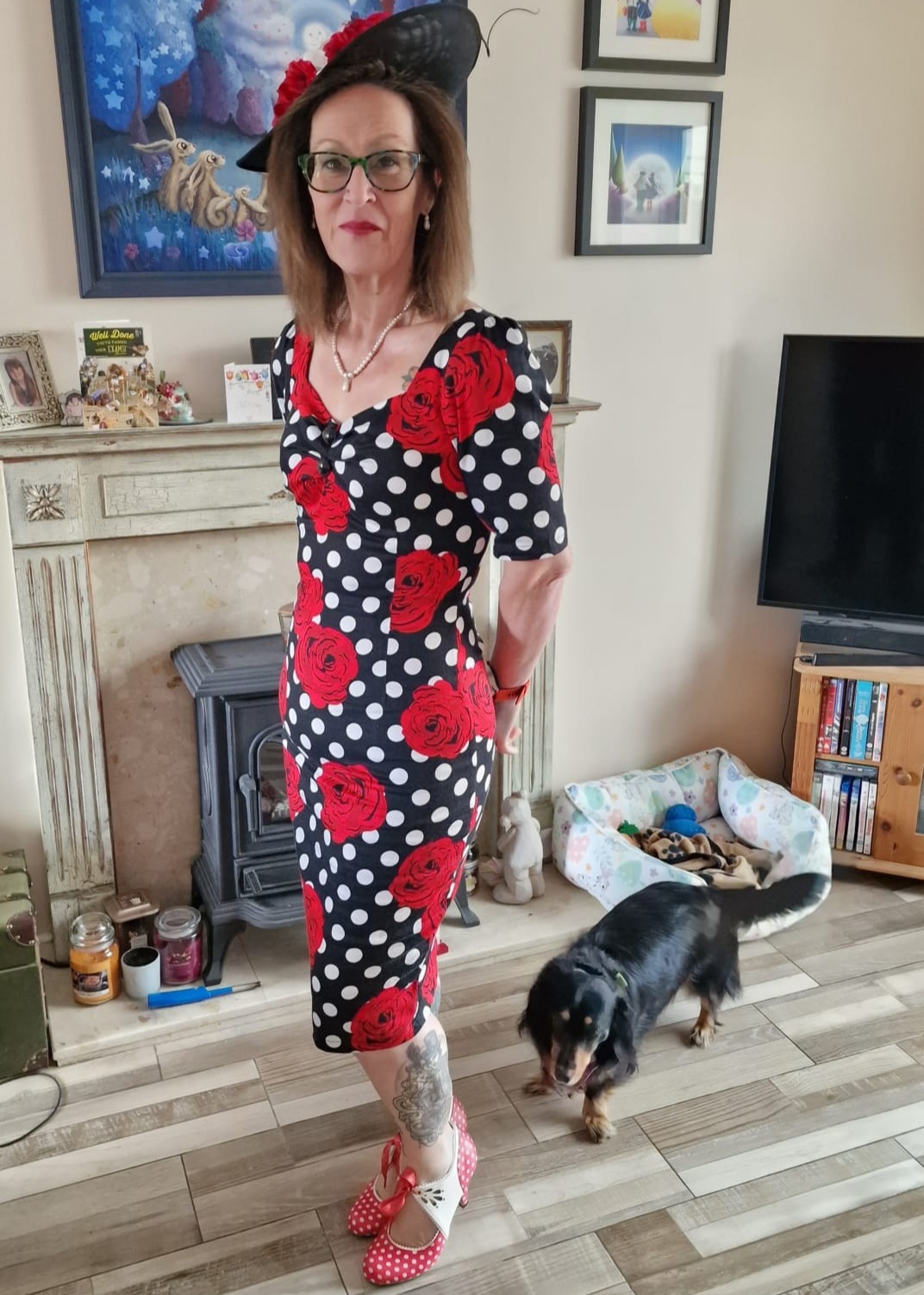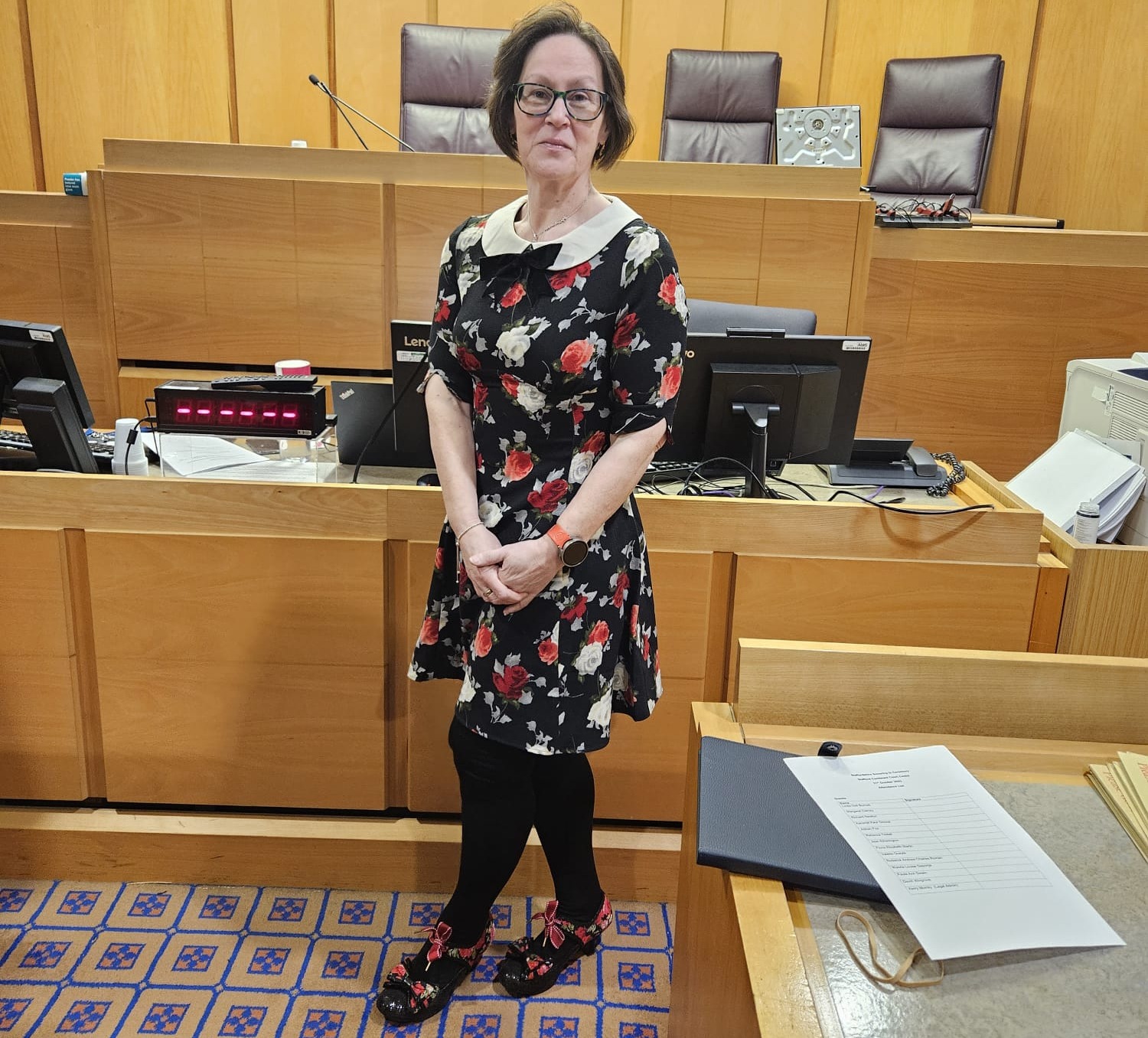When Michelle Geoghan had the drastic surgery at the Royal Derby Hospital, she knew it was a last resort to beat the “food monster” that compelled her to eat.
But while the £10,500 operation fixed her stomach and helped her loose weight, it did little to tackle the real problem: her relationship to food.
The mum from Brownhills in the West Midlands had been struggling with “shame and binge eating” for as long as she could remember.
It wasn’t until she ‘re-trained’ her brain that she finally felt free of the demons that had been plaguing her for decades.
“After losing over 10 stone from the surgery, I discovered I had an even harder battle to fight – my surgery fixed my stomach but could not fix my head,” the 51-year-old told What’s The Jam.
Read more Weight loss stories
“Gastric surgery is often seen as the ‘easy way out’.
“People think once you have surgery, your weight loss problem is ‘fixed’.
“My 30-year cycle of binge eating and shame didn’t just stop with surgery – in fact it made it even worse.
“As an emotional eater, my ‘food monster’ still compelled me to turn to food as a coping mechanism.”
Michelle weighed 20 stone at her heaviest.
In April of 2022, she reached her lowest weight of 9st 1lbs – shedding over half her body weight.
But the mum to Abigail, 23, and partner to Richard Newton, 47, didn’t feel like it was enough, constantly criticising herself.
This stress saw her once again eat excessively but with the addition of “very destructive, self-harming behaviours” in a bid to stay slim after her 2020 gastric operation.
Michelle would binge on items such as chocolate bars, cakes, and sweets.
She then began abusing laxatives, over-exercising, and even making herself sick.
“My mum had left me the money that had paid for my gastric sleeve privately after she passed away in 2019,” Michelle said.
Eating disorder warning signs
The NHS has a list of warning signs to look out for in yourself if you think you might be struggling with an eating disorder. If you recognise any of these symptoms in yourself, you may want to seek help – scroll down for places you can get in touch with as the first step.
Symptoms to look out for are:
- spending a lot of time worrying about your weight and body shape
- avoiding socialising when you think food will be involved
- eating very little food
- making yourself sick or taking laxatives after you eat
- exercising too much
- having very strict habits or routines around food
- changes in your mood, such as being withdrawn, anxious or depressed
You may also start to notice physical symptoms, which can include:
- feeling cold, tired or dizzy
- pains, tingling or numbness in your arms and legs (signalling poor circulation)
- feeling your heart racing, fainting or feeling faint
- problems with your digestion, such as bloating, constipation or diarrhoea
- your weight being very high or very low for someone of your age and height
- not getting your period or other delayed signs of puberty
“I pictured her being so disappointed in me.
“I was soon weighing every single thing that I ate and counting every calorie – I even had panic attacks around food.
“The people in my life knew I was counting calories and weighing food but didn’t realise how obsessive it had become.
“I did everything secretly.”
Thankfully, Michelle soon accepted that she needed help.
She tried to get treatment through her GP, as she had previously done way back in 2012, before concluding her best option was private treatment due to long waiting lists.
Where to get help if you’re struggling with a food addiction
It can be very scary dealing with a food addiction, and often people are left feeling as if no-one else understands. But there are numerous places online that you can reach out to if you’re struggling
Your GP
Booking an appointment with the doctor is a good first step in seeking help. Often surgeries have doctors or nurses that are specifically trained to deal with weight problems – so it’s definitely worth asking. The GP also often has access to locally run courses that can help, and can refer you to an eating disorder specialist.
BEAT – the UK’s eating disorder charity
There are so many ways you can get in touch with BEAT. There are helplines open from 3pm to 8pm – just call 0808 801 0677. You can also email [email protected] or start a web chat online here.
SHOUT
Shout is another helpline that’s been set up to help with mental health issues, including food addiction. To get in touch, you just need to text SHOUT to 85258. It’s also available 24/7.
The Samaritans
The Samaritans is open 24 hours a day, and you can get in touch by calling 116 123. They also have an email option, and are starting to roll out a web chat service, although this is only available in some areas at the moment.
But then, while doing her own research, she stumbled upon Brain Working Recursive Therapy (BWRT), which helps the brain cope better with triggers.
Her life has now changed completely.
Michelle is now a size 10 and her weight fluctuates around 10st.
“I didn’t realise that I had an eating disorder, but I knew that my weight was essentially ruling my life,” she explained.
“I reached out to my private healthcare provider as they provided psychological support as well as the gastric surgery – I was told to let the feeling wash over me, distract myself and write a diary.
“Then one day, I was scrolling through Facebook and discovered BWRT, booking sessions with a coach, Anna Ferguson.
“After the sessions, I felt like I had my life back.
“I am very lucky that I found this method because, without this, I have no doubt that I wouldn’t be here today.
“Now it’s 2024 and I’m living a happy, healthy life.”
